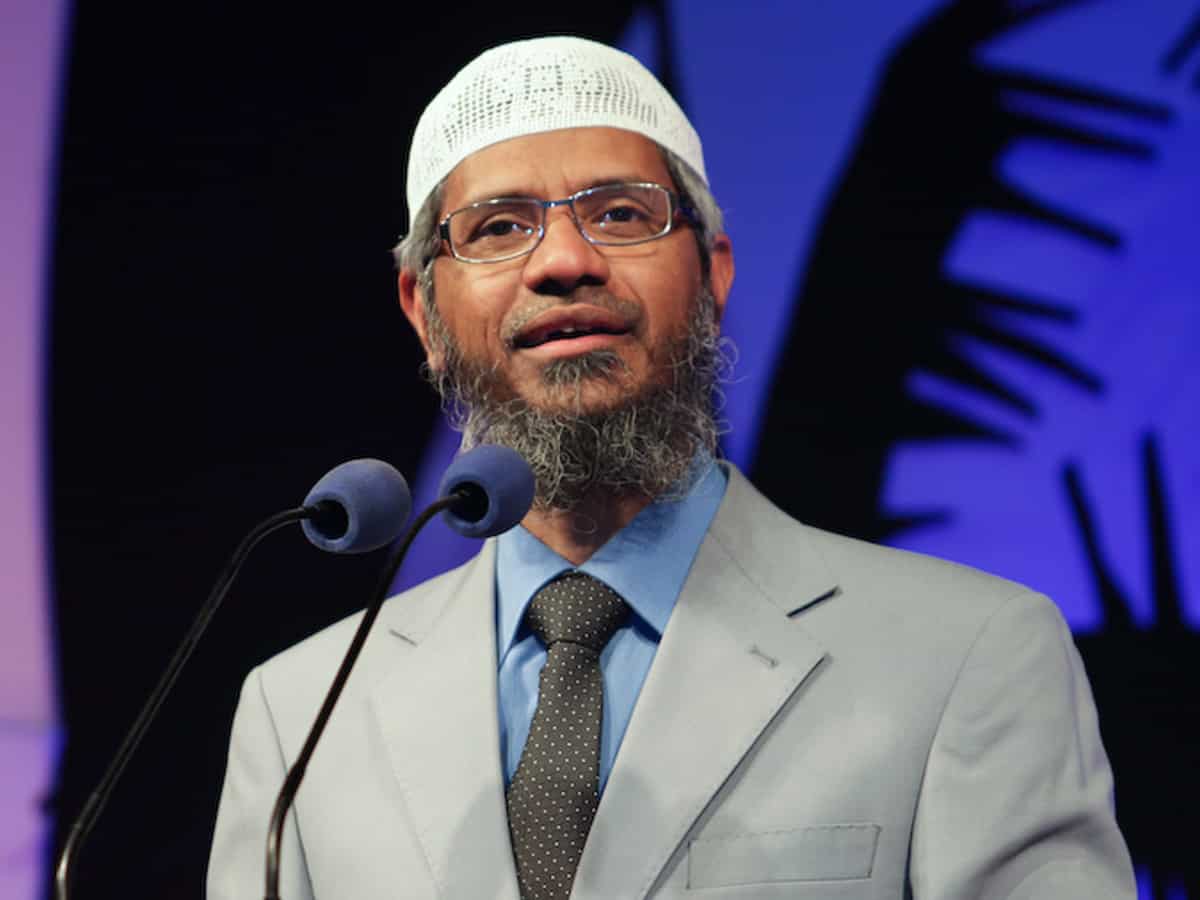
New Delhi: The Tribunal under the Unlawful Activities (Prevention) Act (UAPA) in its order confirmed the notification dated 15 November 2021 issued by the Union of India under sub-Sections (1) and (3) of Section 3 of the Act declaring Zakir Naik’s Islamic Research Foundation (IRF) as an “unlawful association”.
The Tribunal in its order stated that it is in full agreement with the argument made by Solicitor General Tushar Mehta appearing on behalf of the Central Government and the evidence brought on record has also proved that the respondent Association is indulging in unlawful activities.
The Tribunal order states “the convincing and persuasive evidence placed on record, this Tribunal is of the view that there are sufficient reasons and causes for declaring the Islamic Research Foundation as an unlawful association and consequently, this Tribunal confirms the Notification dated 15 November 2021, issued by the Government of India for the imposition of ban on IRF for a period of five years with effect from the date of the aforesaid notification.”
MHA notification
The Ministry of Home Affairs in a notification issued on 30 March 2022, stated that the Tribunal in the exercise of the powers conferred by sub-section (3) of section 4 of the said Act, passed an order on 09 March 2022, confirming the declaration made in the said notification. Therefore, in pursuance of sub-section (4) of section 4 of the said Act, the Central Government publishes the order of the said Tribunal.
After going through the evidence, the Tribunal said, “It is satisfied that there existed sufficient cause for imposing the said ban on IRF as its unlawful activities are subsisting through various mediums, which are detrimental to the sovereignty, unity, integrity, security of India and causes disaffection against India”.
Earlier, the IRF stated that the Central Government’s action to declare the Foundation as an unlawful association’ under/section 3 of the Act, is unwarranted and unjustified, besides being wholly arbitrary and illegal, and amounts to abuse of the draconian provisions of the Act.
IRF in its reply to the UAPA tribunal stated that “There is not an iota of evidence to show that the Foundation has ever indulged in any unlawful activity in the past. The Foundation also does not have for its objects any unlawful activity or any activity punishable under sections 153 (A) or 153 (B) of the Indian Penal Code (IPC). The Foundation is a registered charitable Public Trust and has in its aims and objects, activities which inter-alia promote charitable, educational, moral and socio-economic development, besides establishing schools, orphanages, research and educational institutions, hospitals, etc. and also giving scholarships and educational support to deserving students.”
In the matter, Tushar Mehta, Solicitor General of India with Sachin Datta, Senior Advocate, Amit Mahajan, Capital Goods Skill Council (CGSC), Advocates Rajat Nair, Jay Prakash Singh, Kanu Aggarwal, Dhruv Pande, Himanshu Goel and Shantanu Sharma appeared for the Government of India. Advocates Rahul Chitnis and Aaditya Pande appeared for the State of Maharashtra. Advocates S.Hari Haran, Shakul R. Ghatole, Bhavana Duhoon, Jaikriti S. Jadeja appeared for IRF.
The Tribunal earlier had sought the response of Zakir Naik and the IRF in the plea to confirm the Centre’s decision to declare Islamic preacher Zakir Naik’s organization Islamic Research Foundation (IRF) as an “unlawful association” under the UAPA.
The Ministry of Home Affairs (MHA) had set up a tribunal headed by Delhi High Court Chief Justice D N Patel under the UAPA to adjudicate over IRF ban.
Ban on IRF was extended
The MHA had extended the ban imposed on Islamic Research Foundation (IRF), an NGO headed by Islamic evangelist and India-born preacher Zakir Naik for a further five years.
In its notification issued, the Ministry mentioned if the activities of the “unlawful association” were not curbed, it would continue its subversive activities and reorganize its absconding activists to create communal disharmony, propagate anti-national sentiments and support militancy.
The Ministry in its notification had said that Islamic preacher Naik’s speeches and statements were meant to inspire youths of a particular religion in India and abroad to commit terrorist acts.
Naik’s statements and speeches are objectionable, subversive that promote enmity, hatred among religious groups, the Home Ministry said on extending the ban on IRF.
According to the Ministry, “Naik makes radical statements and speeches which are viewed by crores of people worldwide.”
The Ministry said that “these statements by Naik can also disrupt the secular fabric of the country by polluting the minds of the people by creating communal disharmony, propagate anti-national sentiments, escalate secessionism by supporting militancy and some people may undertake activities which are prejudicial to the sovereignty, integrity and security of the country”.
Naik runs two television stations, namely Peace TV and Peace TV Urdu. Both the channels are banned in many countries. It is banned in India, Bangladesh, Sri Lanka, Canada and the United Kingdom.
The IRF head fled to Malaysia in 2016, just before the National Investigation Agency (NIA) started a probe against the Islamic preacher.



